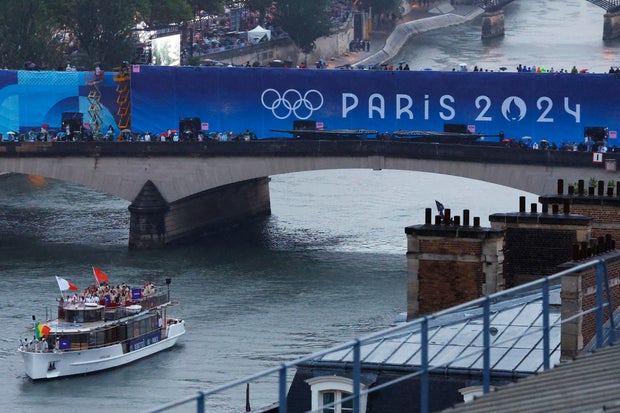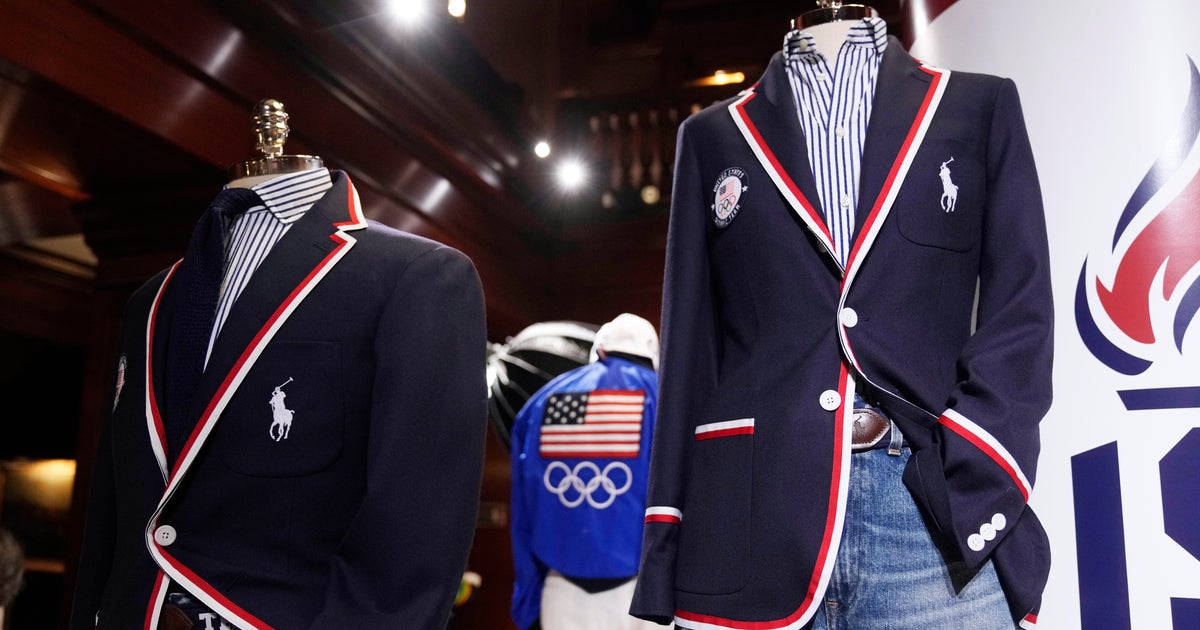Seine river pollution delays Olympic training as water testing continues
Paris — Paris officials are leaving it to the last minute to decide if the first Olympic swimming event in the Seine river can go ahead Tuesday morning. A city official told CBS News that a decision on whether the swimming leg of the men's triathlon can take place safely will be taken "during the night." That is to give officials time to review the latest results of tests of the river water.
Water contamination levels forced officials to cancel a triathlon training session scheduled to take place in the Seine on Monday. It was the second of the sessions to be scuttled by water pollution, and with more water quality test results pending, it remained unclear whether the first actual 2024 Paris Games event would go ahead as scheduled in the iconic waterway.
"The city is still confident that there will be improvements with the good weather," the official said.
However, just hours before the men's triathlon was due to start, at 8 a.m. local time Tuesday, Paris City Hall had still not released any updated results, and the event was still on the Olympic calendar. That despite independent tests showing the levels of E. coli had jumped significantly following the weekend's heavy rain.
The Fluidion Open Data Initiative has been testing the Seine water regularly. Its latest tests, carried out Monday close to the site for the triathlon swimming event, showed concentrations of E. coli between 3.5 and nine times higher than the levels set by World Triathlon, the sport's governing body.
Heavy rainfall over the weekend — including during almost all of Friday's opening ceremony — resulted in a huge inflow into the river system, and the runoff can raise levels of E. coli and plankton that make it unsafe for swimming.
The Seine's water level is already far higher than normal for July, largely because there's been so much rain over the past several months. Paris has had twice the typical amount of rainfall this July.
The men's triathlon will be followed by the women's triathlon on Wednesday and then the mixed relay is planned for Aug. 5.
Paris Olympics chief Tony Estanguet has said if final tests before an event show the river is unsafe for swimming, the event will be postponed, but likely only by a day or two.
The forecast for the next several days in Paris is for sunshine and temperatures in the mid-80s, so postponement could be a viable option. But there are localized thunderstorms in the forecast for Tuesday through Thursday, too, and if they do bring more rain, especially heavy rain, it will be bad news for the swimming events.
World Triathlon, the governing body for the sport, sets guidelines for safe inland water quality to protect athletes. Asked what would happen if Monday's tests continued to show levels of E. coli above those safe thresholds, Estanguet said the swimming stage of the triathlon could simply be dropped.
"Then it would be a biathlon," he said, although that is not officially a Summer Olympics sport.
If the problems linger in the water, it would also leave a very slim time margin for Paris Games officials to postpone the 10-kilometer swimming marathons, slated to take place Aug. 8 and 9, just ahead of the closing ceremony on Aug. 11.
On July 17, Paris Mayor Anne Hidalgo took advantage of a few days of dry weather to take make good on her promise to go for a dip in the Seine, after her office announced the river had tested safe for swimming the week before. Hidalgo had promised the Seine would be clean enough to host events for the Games, 100 years after swimming in the river was banned because of the health risks.
Much of the pollution is from wastewater that used to flow directly into the Seine whenever water levels were high. The city has spent $1.5 billion over about a decade cleaning the river, including with the construction of a giant underground rainwater storage tank in southeast Paris.




